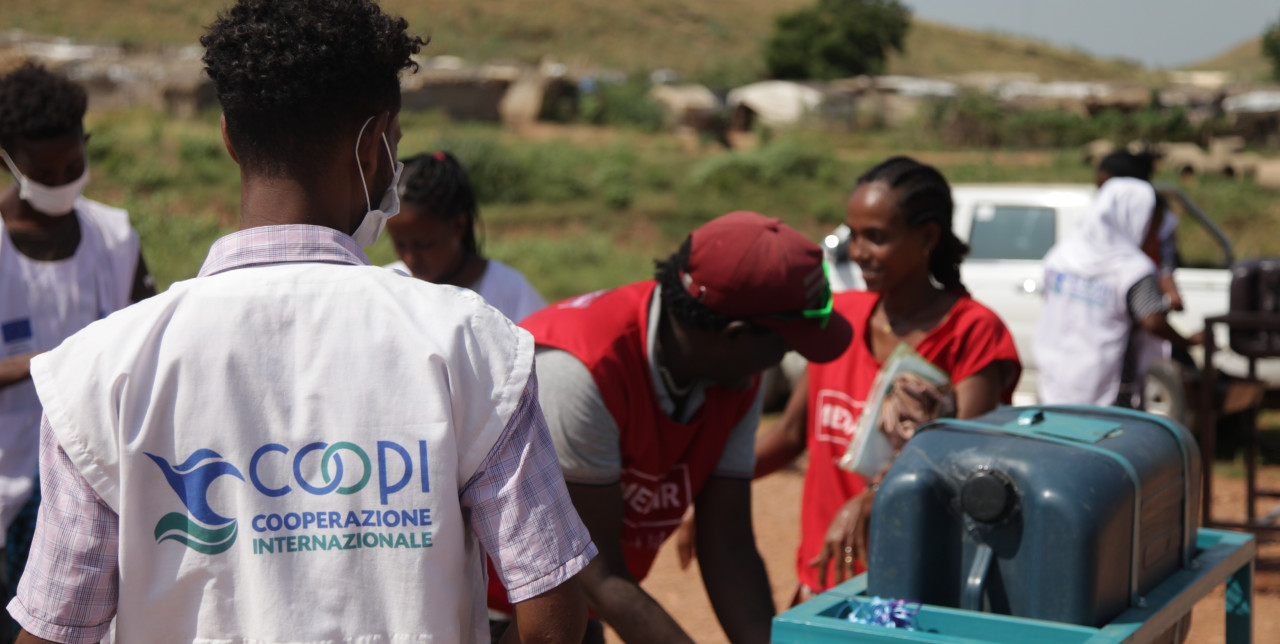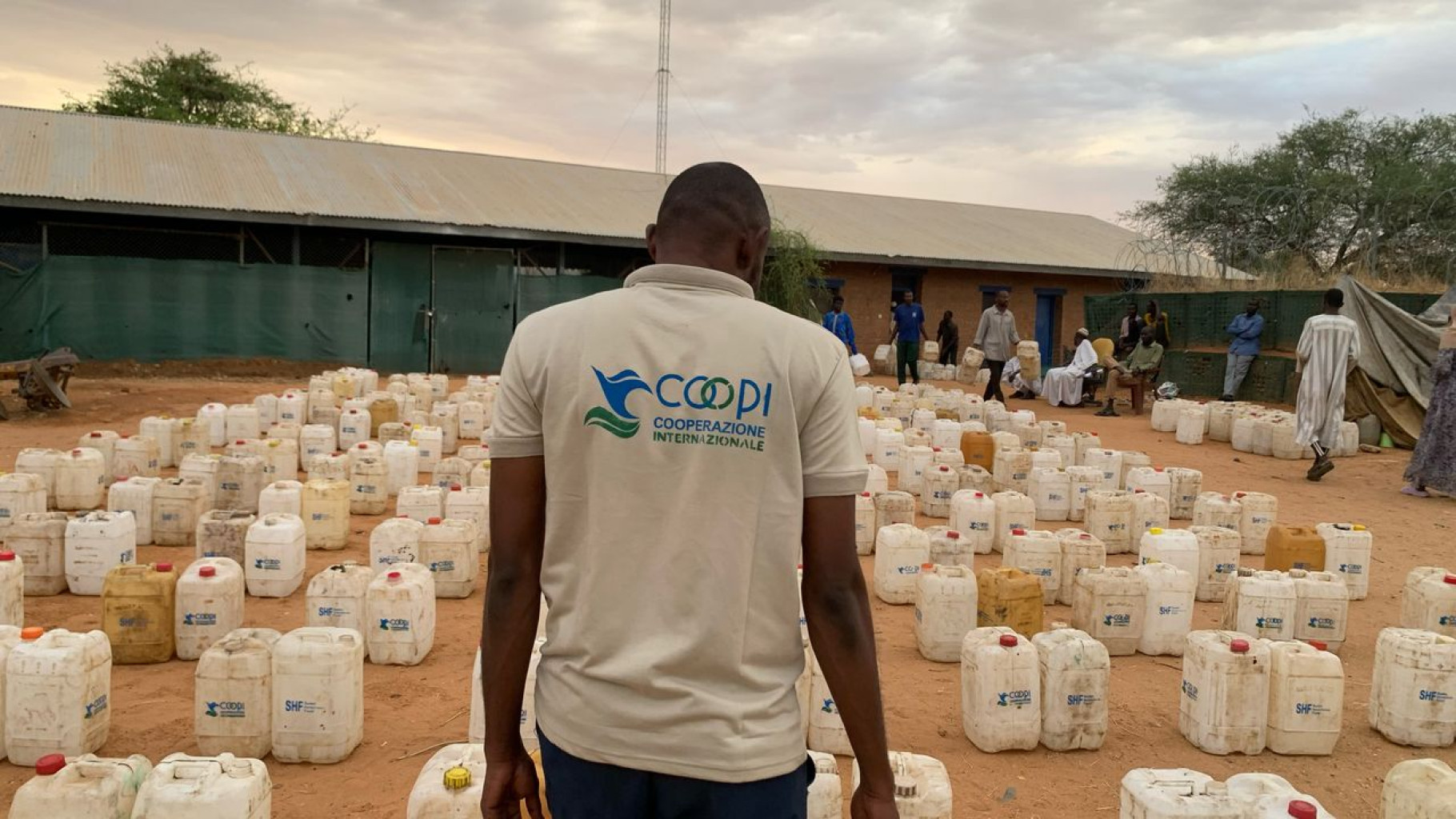18-06-2025 | di COOPI
Sudan. El Fasher emergency: COOPI's prompt response
Since April 15, 2023, Sudan has been at the center of what is now considered the world’s most severe humanitarian crisis. Over 12 million people have been forced to flee their homes, becoming internally displaced or seeking refuge in neighboring countries such as Chad, South Sudan and Egypt. The situation deteriorated further in April 2025 with an attack on Zamzam displacement camp, one of the largest in North Darfur, forcing more than 500,000 people to flee within hours toward El Fasher. In response, COOPI – Cooperazione Internazionale is taking urgent action with the emergency project “WASH life saving intervention in response to El Fasher- Tawila crisis”, funded by the United Nations Office for the Coordination of Humanitarian Affairs (OCHA), to support affected populations.
COOPI is on the ground to support civilians, those most impacted by the conflict, by working to improve their extremely fragile living conditions”
says Chiara Zaccone, COOPI’s Head of Mission in Sudan.
The conflict has claimed thousands of lives, including many civilians, and has triggered an unprecedented food crisis. An estimated almost 25 million people are now facing food insecurity, with many women and children unable to access even one meal a day due to the high cost of food.
Even before the April 2025 attack, the situation in El Fasher was already critical: many families had been forced to relocate to nearby towns such as Melit and Tawila, driven by increasing violence and deteriorating economic conditions. COOPI’s emergency response includes the daily distribution of 70,000 liters of safe drinking water, vital for preventing disease outbreaks and ensuring minimum hygiene standards. The organization is also building 50 emergency latrines in newly established informal settlements, providing essential sanitation services for displaced families.
COOPI has been operating in Sudan, and specifically in El Fasher, since 2004, delivering humanitarian aid and focusing on the most vulnerable communities affected by conflict and natural disasters. Through a multisectoral and integrated approach, COOPI has expanded access to basic services over the years. Its work includes shelter and non-food item distribution, food security and livelihoods support, water and and hyigiene and disaster risk reduction across North Darfur, Kassala and Khartoum states.




 Sudan
Sudan
